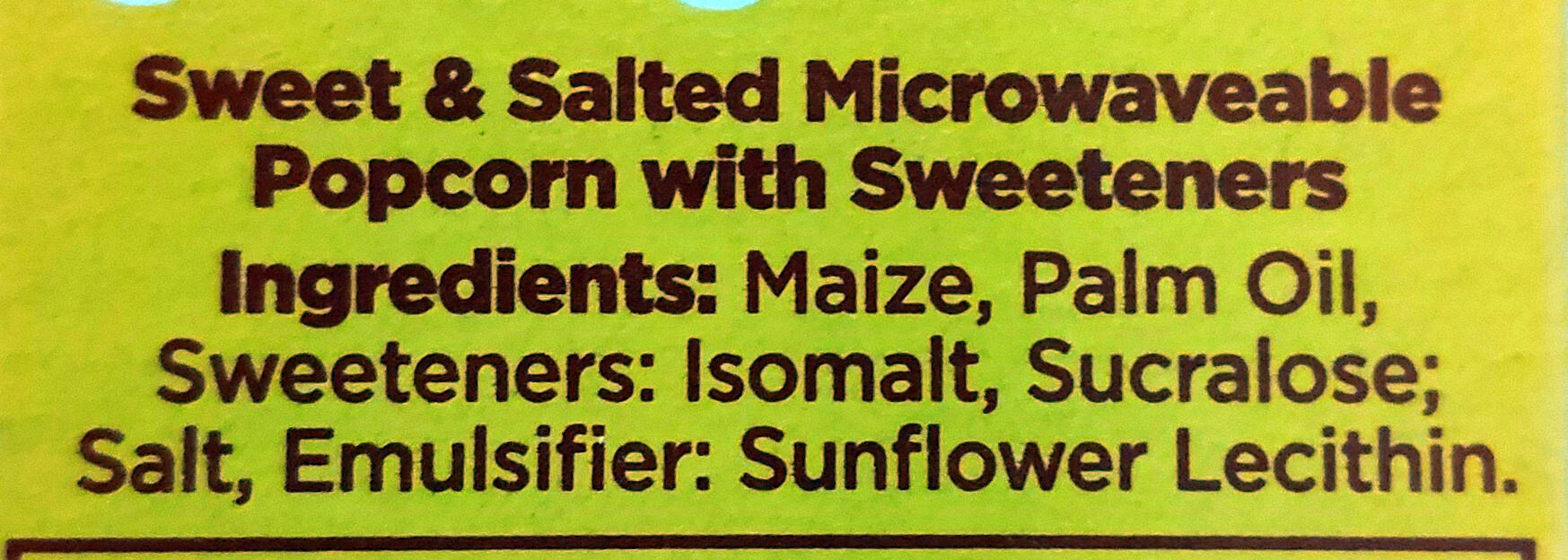Sweet & Salted microwave popcorn - Butterkist - 180g
This product page is not complete. You can help to complete it by editing it and adding more data from the photos we have, or by taking more photos using the app for Android or iPhone/iPad. Thank you!
×
Barcode: 5000237129753 (EAN / EAN-13)
Common name: Sweet & salted microwaveable popcorn with sweeteners
Quantity: 180g
Packaging: Box, Cardboard, Card-box
Brands: Butterkist
Categories: Snacks, Sweet snacks, Popcorn, Sugared popcorn
Labels, certifications, awards: No gluten, Vegetarian, Source of fibre, High fibres, No colorings, No flavors, With sweeteners
Link to the product page on the official site of the producer: https://www.butterkist.co.uk/products/sw...
Stores: Asda
Countries where sold: United Kingdom
Matching with your preferences
Report a problem
Data sources
Product added on by openfoodfacts-contributors
Last edit of product page on by inf.
Product page also edited by alia, ecoscore-impact-estimator, packbot, roboto-app, stormbear, swipe-studio.













